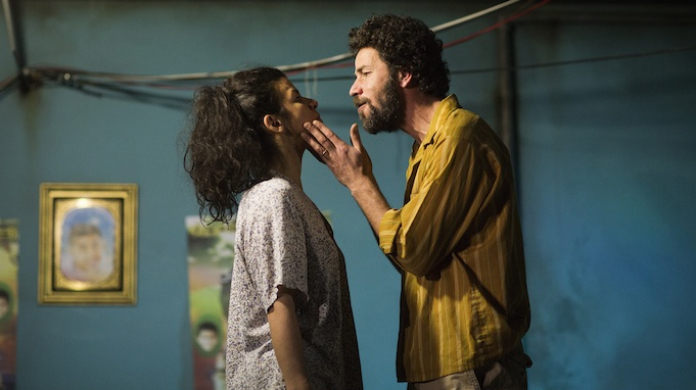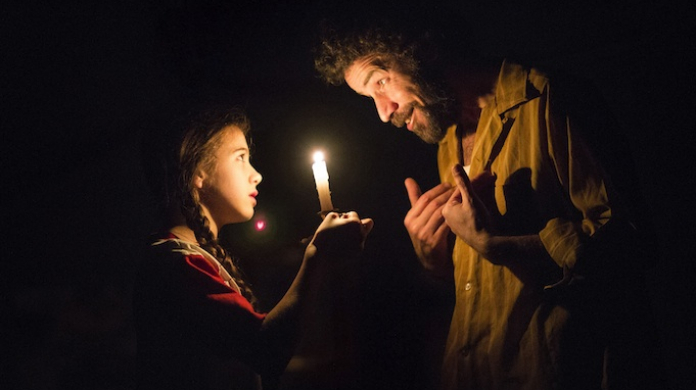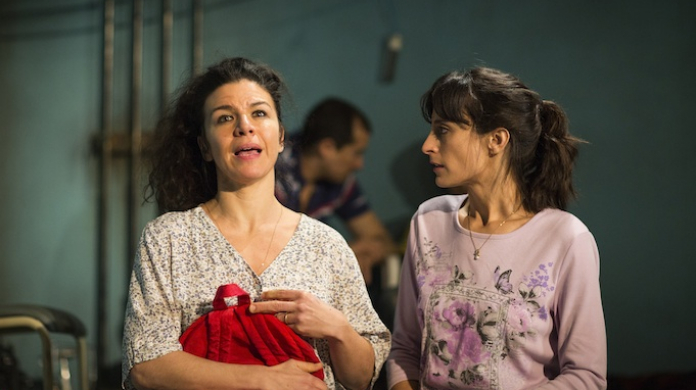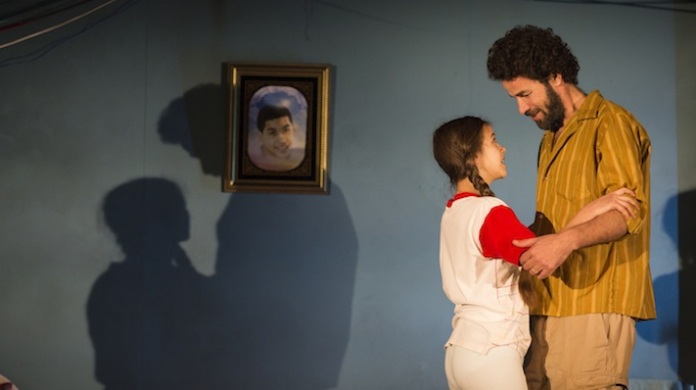The Royal Court has been working in Palestine since 1998, led by International Director Elyse Dodgson. Fireworks was its first full production by an emerging Palestinian playwright, and Richard Twyman, who directed it, talks about the experience
"We can't only look inwards"
The Royal Court has always had international work as an integral part of its programme. That came about from George Devine – he wanted international work to be on a London stage. For a long time that was mostly European work, or a South African season. With an international department now, led by Elyse Dodgson, and the support of the British Council and the Genesis Foundation, we’ve been able to go further and further afield, and to meet writers who want to tell stories about their world. There’s a real privilege to working with those writers. It’s a unique position that we have. For me, as a personal thing, there are extraordinary divisions in the world, and one of the fundamental ways to understand each other is to tell stories. That’s what we do as human beings.
It also offers us ways of making theatre that we wouldn’t necessarily otherwise see, and that can be hugely beneficial to playwrights and theatre artists here. That’s so healthy for our whole theatre ecosystem. We can’t only look inwards, we have to take influences from outside.
Our relationship with Dalia [Taha, author of Fireworks], started about two years ago, when she applied to our international playwriting group. It is an absolute luxury as an artist to meet something very early on in its creative process and take it all the way through. I was very fortunate in that by the time Dalia was ready to go into rehearsals for this play, I’d been to Palestine twice, and that was hugely influential and inspiring in terms of the work I then was able to do on the play.
We can’t only look inwards, we have to take influences from outside.
To a certain extent, as a director of new writing, you’re always taking on board someone else’s story and then finding out where you can meet it as an artist, or shine light on elements of it, or bring it to life. But of course, the distance and the difference are particularly exaggerated when it’s not a world you grew up in; it’s about a war I haven’t lived through. There’s lots of ways of dealing with that – and one of those is to get inside the writer’s head and ask them everything, to find out everything they’re thinking and reading. Do your research properly, basically. I also try and burrow away in lots of different corners – I read other plays, I watch movies, I go to exhibitions, I look at photography, I read poetry, I read diaries… you kind of have to totally immerse yourself in that world. It’s so crucial.
Then of course there’s a certain authenticity that comes from the writing and the characters. Particularly on this project, I felt a real responsibility to those who live through this on a daily basis. That’s why I decided to cast Palestinian actor Saleh Bakri – I thought it was important that alongside Dalia we had another voice who had lived through these experiences and who could talk about them, and what it means to be Palestinian. His presence was the best decision I made, I think – his insights were amazing. His personality and his humanity and his joy, his incredible integrity, filtered through to the rest of the company in very subtle ways. It was never “copy what he does”, because that would be an absurd way of directing, but in really subtle ways he profoundly influenced the atmosphere of the piece.
When I was in Palestine for the second time, about two months before we went into rehearsals, we took an evening to read Fireworks in Arabic, with a group of Palestinian actors, because of course the version we performed was in translation. To hear it in its original language, with the rhythm and humour coming through, was one of the most enlightening and extraordinary experiences. It was in moments like that where I felt able to traverse the huge distance between people who’ve grown up in a Western context and those living in Palestinian. There were moments in that room where I felt people were able to reach across that divide and have an understanding.
Richard Twyman is International Associate at the Royal Court. He was talking to Eleanor Turney.



